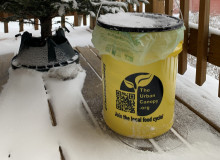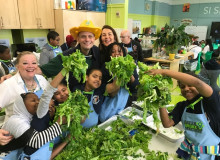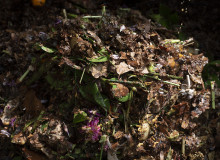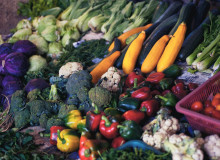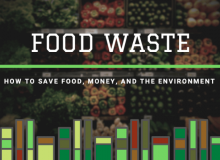Food Waste
Planet Forward Correspondent | George Washington University
Hannah Krantz and Aleena Fayaz speak to Candace Clark, a Ph.D. candidate at Tuskegee University, in this high-spirited podcast that discusses the importance of black voices in climate solutions, sustainable housing, and much more.
University of Chicago
Composting is a growing practice that diverts food waste from greenhouse gas-producing landfills; Chicago colleges provide a case study into how this practice can be implemented more broadly today.
George Washington University
The Bronx is home to many things — Yankee Stadium, the Bronx Zoo, the birth of hip-hop — and most recently, an idea powerful enough to change the world.
Planet Forward Correspondent | George Washington University
Despite our obsession with food, we throw so much of it away. Learn more about composting, a change you can make at home to help the earth.
The George Washington University
To lower their environmental impact, restaurants are transitioning their operations to be more sustainable and climate friendly.
Founding Director, Planet Forward
Imagine wearing a T-shirt made out of ... spoiled milk. Find out more in our latest episode of Planet Forward, seen on PBS's Peril and Promise and produced in association with ASU's Global Futures Laboratory.
Planet Forward Correspondent | Carleton College
When the idea for a reusable container program was pitched last fall, no one could have guessed that a year later, the campus would be overflowing with the green containers — or that we'd be in the middle of a pandemic.
University of Wisconsin-Madison
Organizations in Madison, Wisconsin, focus on community-based solutions to improving food access during the COVID-19 pandemic and beyond.

Lancaster Central Market in Lancaster, Pennsylvania, faced drastic customer reductions at the beginning of the pandemic, resulting in the closure of several stands, and yet most still endure. (Jared Kofsky/PlaceNJ.com/Creative Commons)
Planet Forward Senior Correspondent | New York University
Why do people continue to go hungry in one of the wealthiest nations in the world? And what can we do about the food system to prevent this from happening?
Featured Contributor
Nearly a third of food is wasted at the household level and that eats into our own finances while damaging the environment. How can we fix this?


